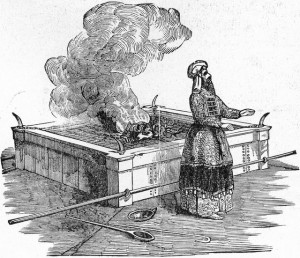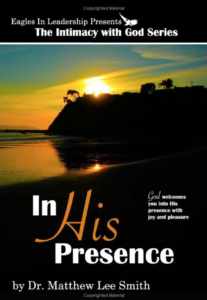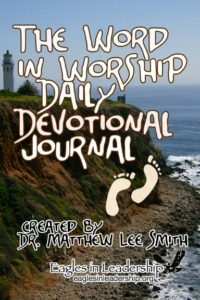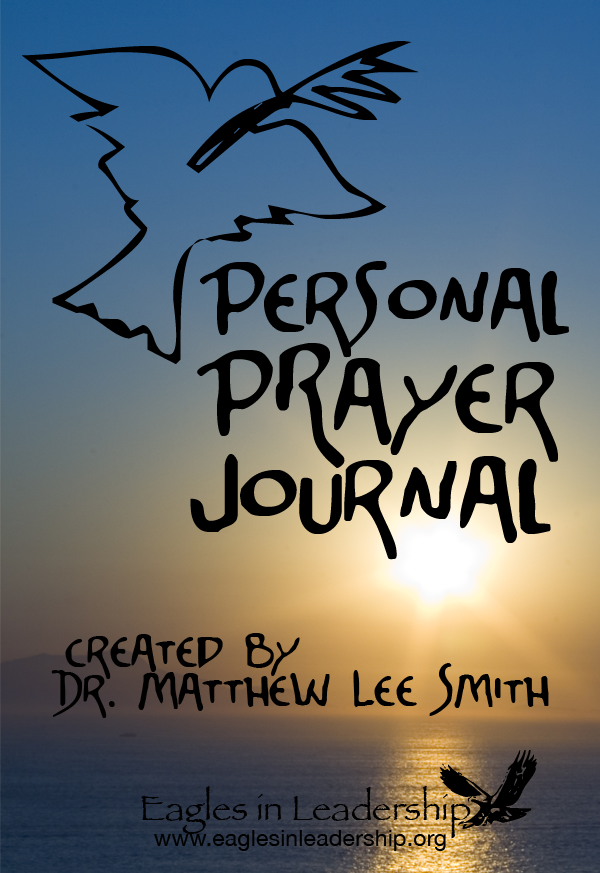Editor’s Note: We continue our series of blogs for those who are reading the Bible with us cover-to-cover this year. Today we discover that …
Acceptable Steps for Walking With the God of the Nation of Israel (Leviticus 18-27)
The nation of Israel, once cleansed of their sins, was to do all that was humanly possible to remain sin-free. They did this through a radical change of their lifestyle. This change is known in the latter half of the book of Leviticus as sanctification.
SANCTIFICATION: The process of God’s grace by which the believer is separated from sin and becomes dedicated to God’s righteousness. Accomplished by the Word of God <John 17:7> and the Holy Spirit <Rom. 8:3-4>, sanctification results in holiness, or purification from the guilt and power of sin.
Sanctification as separation from the world and setting apart for God’s service is a concept found throughout the Bible. Spoken of as “holy” or “set apart” in the Old Testament were the land of Canaan, the city of Jerusalem, the tabernacle, the Temple, the Sabbath, the feasts, the prophets, the priests, and the garments of the priests. God is sanctified by the witness of believers <1 Pet. 3:15> and by His judgments upon sin <Ezek. 38:16>. Jesus also was “sanctified and sent into the world” <John 10:36>
Sanctification in the Atonement. As the process by which God purifies the believer, sanctification is based on the sacrificial death of Christ. In his letters to the churches, the apostle Paul noted that God has “chosen” and “reconciled” us to Himself in Christ for the purpose of sanctification <Eph. 1:4; 5:25-27; Titus 2:14>.
Old Testament sacrifices did not take away sin, but they were able to sanctify “for the purifying of the flesh” <Heb. 9:13>. The blood of the new covenant <Heb. 10:29>, however, goes far beyond this ritual purification of the body. The offering of Christ’s body <Heb. 10:10> and blood <Heb. 13:12> serves to purge our conscience from “dead works to serve the living God” <Heb. 9:14>. Because our cleansing from sin is made possible only by Christ’s death and resurrection, we are “sanctified in Christ Jesus” <1 Cor. 1:2; Acts 20:32; 1 Cor. 1:30; 6:11>. (1986). Nelson’s Illustrated Bible Dictionary. Nashville, TB: Thomas Nelson Publishers.
Sanctification, or the process of setting one’s self apart for God, was to be observed in five major areas of the life of Israel. Among them:
- The people were to be set apart for God by the use of these laws. (Leviticus 18-20)
- The priesthood was to be set apart for God by the use of these laws. (Leviticus 21-22)
- The worship was to be set apart for God by the use of these laws. (Leviticus 23-34)
- The land of Israel was to be set apart for God by the use of these laws. (Leviticus 25-26)
- Things were to be set apart for God by the use of these laws. (Leviticus 27)
It is our hope that this background information helps a bit as you read on in the Bible. We will continue this series with our next installment: “How to Pack for our Journey Through the Bible” on Wednesday when we talk about “Equipment for the Journey.”
For daily insights into the passage we are reading together each day, you can follow Dr. Smith on Twitter and on Facebook.
You can obtain more help from the FREE Bible reading schedule on our resource page. In His Image is a daily devotional that also follows our reading schedule and expresses the Biblical truth: “God Created You to Love You.” You can find this resource on the side bar of our website.













It is interesting that the Israelites had laws that brought them a certain degree of sanctification and “rightness” before God, and yet we do not live by the law due to the sacrifice (sanctification) of Christ. This freedom has caused the Christian to be lax in their service before God.
Yes we are free, but it is freedom from sin. Many Christians have chosen to be in bondage regardless of the freedom that Christ bought for us. The closer we get to being Christ like (Christians) the more sanctified we become, even in the flesh.